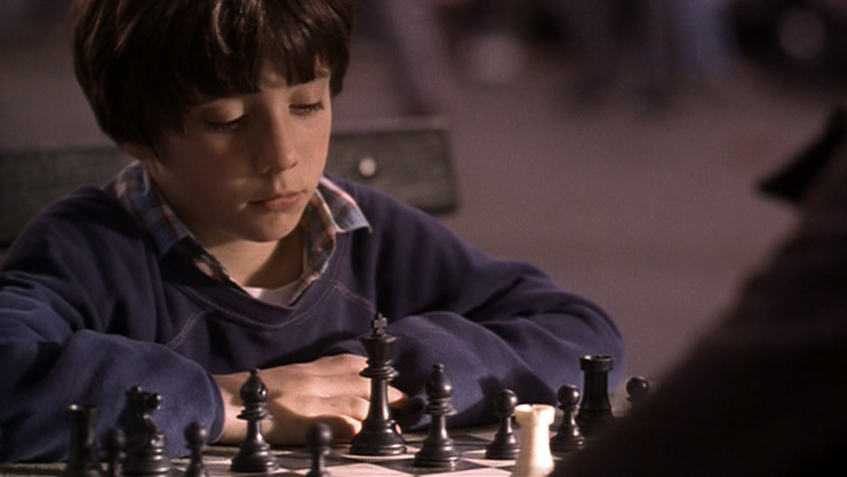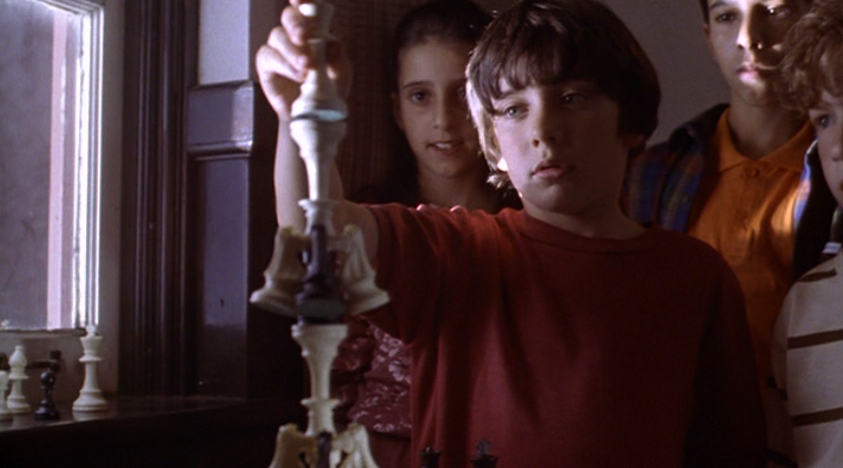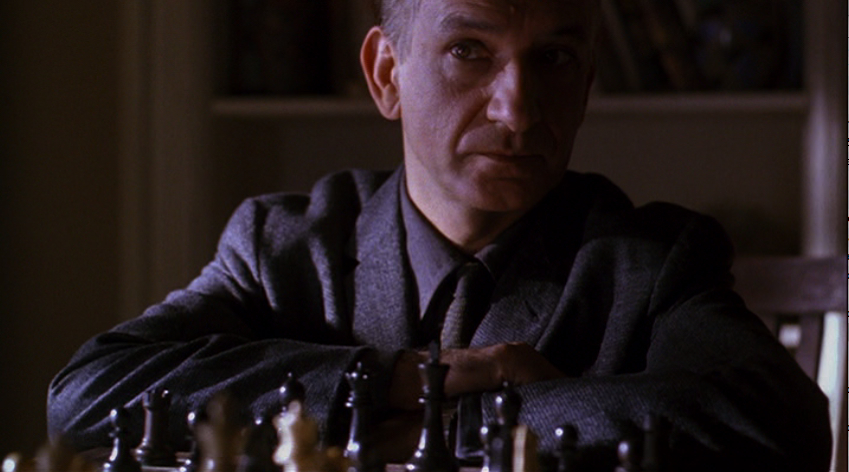Unsung Heroes: The Sound Design of 'Searching for Bobby Fischer'
 Friday, May 13, 2011 at 12:00PM
Friday, May 13, 2011 at 12:00PM  Michael C here from Serious Film to showcase an achievement in a film that has been near and dear to my heart for almost two decades.
Michael C here from Serious Film to showcase an achievement in a film that has been near and dear to my heart for almost two decades.
What is the sound of a person thinking?
Most of us probably don’t often consider such lofty questions, but when you are a sound designer dilemmas like that crop up all the time. The sound design team behind Stephen Zallian’s 1993 chess prodigy drama Searching for Bobby Fischer faced that challenge and then some when they set out to make a chess story work on screen despite it being the least cinematic subject imaginable, give or take the Dewey Decimal System.
Zallian’s solution was to ignore the intricacies of the game, constructing the matches as stylized montages that emphasize the emotions of the players over tactics. The sound designers – under Head Sound Editor Beth Sterner - outdo themselves in these scenes, building crescendos out of the furious clacking of pieces and the occasional island of stillness. Not only does this make chess palatable for general audiences but, more importantly, it gets to the heart of the material.

For a serious chess player, especially a seven-year-old one, the stakes are life and death. When, for example, a queen is blundered away, the echo of the piece against the table perfectly captures the sudden pit of the stomach realization of an irrevocable screw up. Without a moment spent explaining the rules, much less the advanced strategy at play, the sound design allows us to the grasp the changing balance of power every step of the way.
Beyond sidestepping the tedium of the game, the sound team deserves praise for creating a series of distinct aural environments to show the journey of the young chess genius. During the first joyful scenes of play in the park the soundtrack is bursting with life. The main action has to jostle for room in the mix with the sounds of players, passerby, and city life. The more Josh is pulled into the insular world of serious chess the more the life is leeched out of the soundtrack. By the time young Josh is having his final confrontations with his teacher, you would think they were playing in a monastery the way each sound echoes in isolation. From the sound design alone we can understand the sacrifice that is being asked of this boy in order to be the best.

At one point, the chess hustler played by Laurence Fishburne insists Josh remember that his opponent is not the pieces on the board but the flesh and blood person sitting across from him. The filmmakers take their lead from this, letting the emotions of the characters, and not the strategy of the game, take center stage. In its own modest way the sound team, with help from the stellar editing of Wayne Wahrman, does for chess what Scorsese did for Raging Bull, abandon the literal reality of the sport in order to get at the subjective experience of what it feels like to be in thick of the battle.


